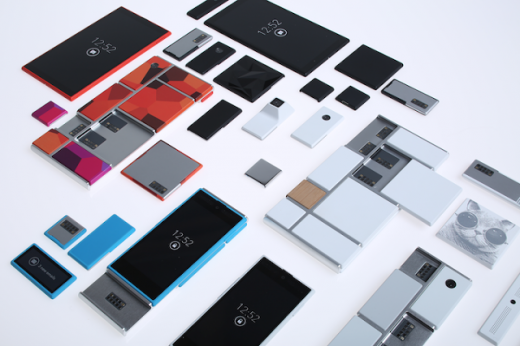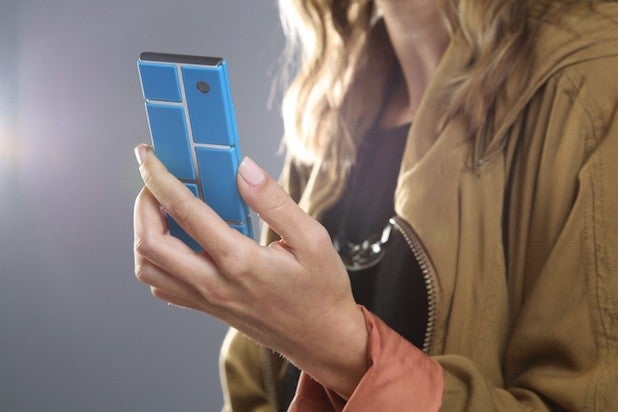Google backs modular smartphones with the launch of Project Ara
Concept for 'swappable' smartphones found popularity with Phonebloks but is now being backed by Motorola

Your support helps us to tell the story
From reproductive rights to climate change to Big Tech, The Independent is on the ground when the story is developing. Whether it's investigating the financials of Elon Musk's pro-Trump PAC or producing our latest documentary, 'The A Word', which shines a light on the American women fighting for reproductive rights, we know how important it is to parse out the facts from the messaging.
At such a critical moment in US history, we need reporters on the ground. Your donation allows us to keep sending journalists to speak to both sides of the story.
The Independent is trusted by Americans across the entire political spectrum. And unlike many other quality news outlets, we choose not to lock Americans out of our reporting and analysis with paywalls. We believe quality journalism should be available to everyone, paid for by those who can afford it.
Your support makes all the difference.The concept of modular smartphones has been riding high following the launch of the Phonebloks campaign, but now the idea has the big backer it needs: Motorola.
The Google-owned company has announced plans to consult with Phonebloks inventor Dave Hakkens to develop a “free, open hardware platform for creating highly modular smartphones” under the name Project Ara.
Modular smartphones allow users to replace individual components in their mobiles, swapping out a camera or processor if the part breaks or becomes out-of-date. This approach to electronics both minimises waste and allows consumers more choice, but so far the idea has only been a concept.
Dutch designer Hakkens popularised modular phones with his Phonebloks campaign (see below for the video) but admits that the idea's success “totally depends if companies think there is a market for it.” This latest news from Motorola suggests that they do.
The phone company will be working Hakkens to develop their “ common vision”, with Motorola handling the “deep technical work” while Hakkens develops and empowers the community. Specially-selected “research scouts” will have the opportunity to test early hardware prototypes and offer feedback to Motorla.
“We want to do for hardware what the Android platform has done for software: create a vibrant third-party developer ecosystem, lower the barriers to entry, increase the pace of innovation, and substantially compress development timelines,” say Motorola.
.jpg)
The design concept consists of an endoskeleton (an ‘endo’) and separate modules, with the endo providing the structural frame to hold all the modules in place: “A module can be anything, from a new application processor to a new display or keyboard, an extra battery, a pulse oximeter--or something not yet thought of!”
Hakkens pitched his Phonebloks concept as simply an idea in need of support but with Motorola’s backing (and Google’s ambition) it seems modular smartphones might become a reality. The phone company are anticipating an alpha release of the Module Developer’s Kit (MDK) “sometime this winter.”

Join our commenting forum
Join thought-provoking conversations, follow other Independent readers and see their replies
Comments